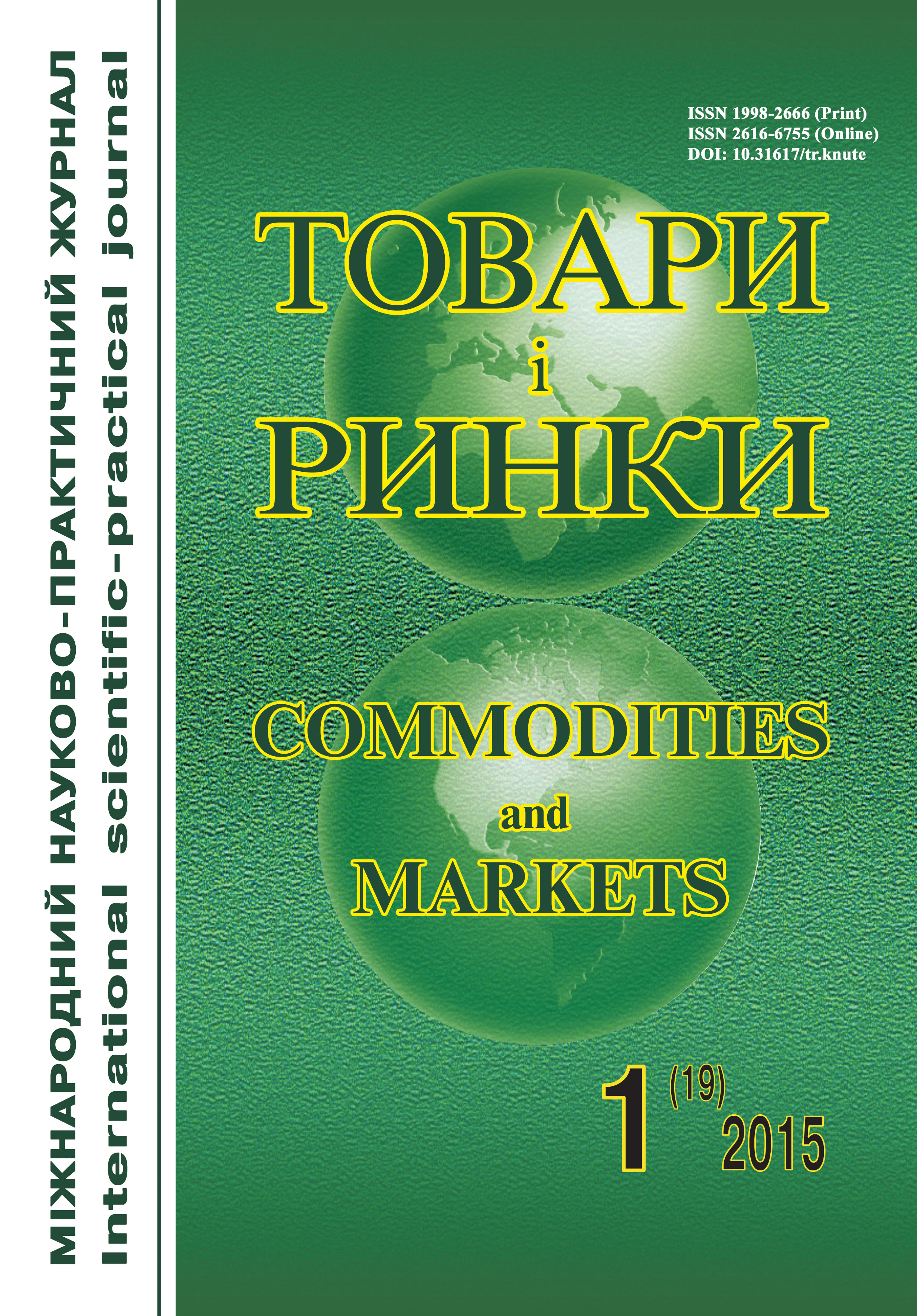Engineering and technical modeling of the support system of hotel and restaurant complex
Keywords:
intellectual modeling, auto modal solutions, differential equation, inverse problem, hotel and restaurant complexAbstract
Background. Hotel and Restaurant Complex (HRC) is a system of administrative, industrial or residential buildings, consisting of subsystems that provide certain functions (electricity, running water, climate control). The functioning problems gained relevance during the operation of large modern hotel and restaurant complex. They are expanding and getting more complicated all the time and must be intellectually managed.
The aim of the scientific work is to develop the methodology of intellectual modeling, that includes basic principles of the system level that is applicable to the HRC facilities. On the methodological level we aimed to identify the instruments to develop and analyze system models of complex HRC facilities, forecast outdating, testing these models in electronic computing machine interpretation.
Material and methods. Intellectual engineering and technological simulation method combines many known methods and offers enough opportunities for free expression personification, however, sets certain limits to particular set of key characteristics. A set of these characteristics is regarded as an invariant. System invariant implies such universal system of characteristics that must necessarily be in any hotel and restaurant business. Specific values of these invariants for different HRC systems may be different, that causes their necessity at modeling level.
Levels of implementing a formal system in Hyper dynamic system: verbal, symbolic, algorithmic and computer-algorithmic implementation of "language", which is a set of axiomatic basis of "system language" within the methodology of invariant (predictive) modeling.
With this formal system a number of challenges are solved relating to operation of functioning support of large hotel and restaurant complexes, namely adequate reflection and description of the HRB facilities; situational analysis and forecasting of state and running HRC objects.
Results. The mathematical concept of intelligent engineering and technological modeling of the functioning support of hotel and restaurant complex has been developed. Among the proposed solutions are the equations that describe the functioning support system of hotel and restaurant complex in the form of partial derivatives that are subject to certain combinations of independent variables (environmental, social and technological sphere) and, therefore, satisfy certain ordinary differential equation (ODE hereinafter). Its solution is defined by peculiarity and by interpreted auto modal decisions. It should be noted that ODE is understood both as one ordinary differential equations and system of equations.
The practical component of implementation of intellectual modeling is a basis of the functioning of remote sensor controllers of direct digital control system DDC (Direct Digital Control), which controls the local objects of IHRC: conditioning network units, boilers, refrigeration units, fans, pumps, heating elements and lighting networks, convectors, access control devices and so on. Object distance sensor controllers serve a limited number of system I / O and are mostly located near the controlled object and belonging to it end sensors. Thus, the controller can use the signals coming from the local analog network.
Conclusion. The study has revealed the possibility of building a modern intellectual control system with remote control over the Internet. In formulating the concept of intelligent management system the basic requirements and specifications for its implementation were included, that technologically meet the requirements of the concept of intellectual HRC integrated management systems of this complex. Under the relevant standards, they provide all requirements of engineering and technological modeling, while keeping clear advantages: a thorough study of such systems by numerous developers, availability of open standards, the economic benefits for their users.
References
Bejli K. Matematyka i novi systemni teorii'. Do teorii' teoretychnogo analizu : monografija / K. Bejli (reprynt ukr. movoju). — N'ju Jork : Dzhej, 1994. — 912 s.
Maljuta A. N. Invariantnoe modelirovanie : kurs lekcij / A. N. Maljuta. — Chernigov : Desna, 1999. — Ch. 1. — 89 s.
Maljuta A. N. Giperkompleksnye dinamicheskie sistemy : monografija / A. N. Maljuta. — L'vov : Vyssh. shk., 1989. — 200 s.
Airault H. Rational solutions of Painleve’ equations / H. Airault // Stud. Appl. Math. — 1979. — Vol. 61. — P. 31—53.
Ablovic M. Solitony i metod obratnoj zadachi : monografija / M. Ablovic, H. Sigur. — M. : Mir, 1987. — 479 s.
Kudrjashov N. A. Analiticheskaja teorija nelinejnyh differencial'nyh uravnenij : monografija / N. A. Kudrjashov. — M. : Nauka i mir, 2002. — 304 s.
N'jujell A. Solitony v matematike i fizike : monografija / A. N'jujell. — M. : Mir, 1989. — 328 s.
Gromak V. I. Obobshhennoe vtoroe upravlenie Penleve chetvertogo porjadka / V. I. Gromak, L. L. Golubeva // Vesci NAN Belarusi. — Minsk : Navuka, 2004. — Vyp. 12. — S. 23—32. — Serija fiz.-mat. navuk.
Barenblatt G. I. Podobie, avtomodel'nost', promezhutochnaja asimptotika : monografija / G. I. Barenblatt. — L. : Gidrometizdat, 1982. — 255 s.
Fedorov I. S. Skil'ky poverhiv u intelektual'nij budivli / I. S. Fedorov // BOSS. Biznes: organizacija, strategija, systemy. — 1999. — № 22. — S. 19— 25.



